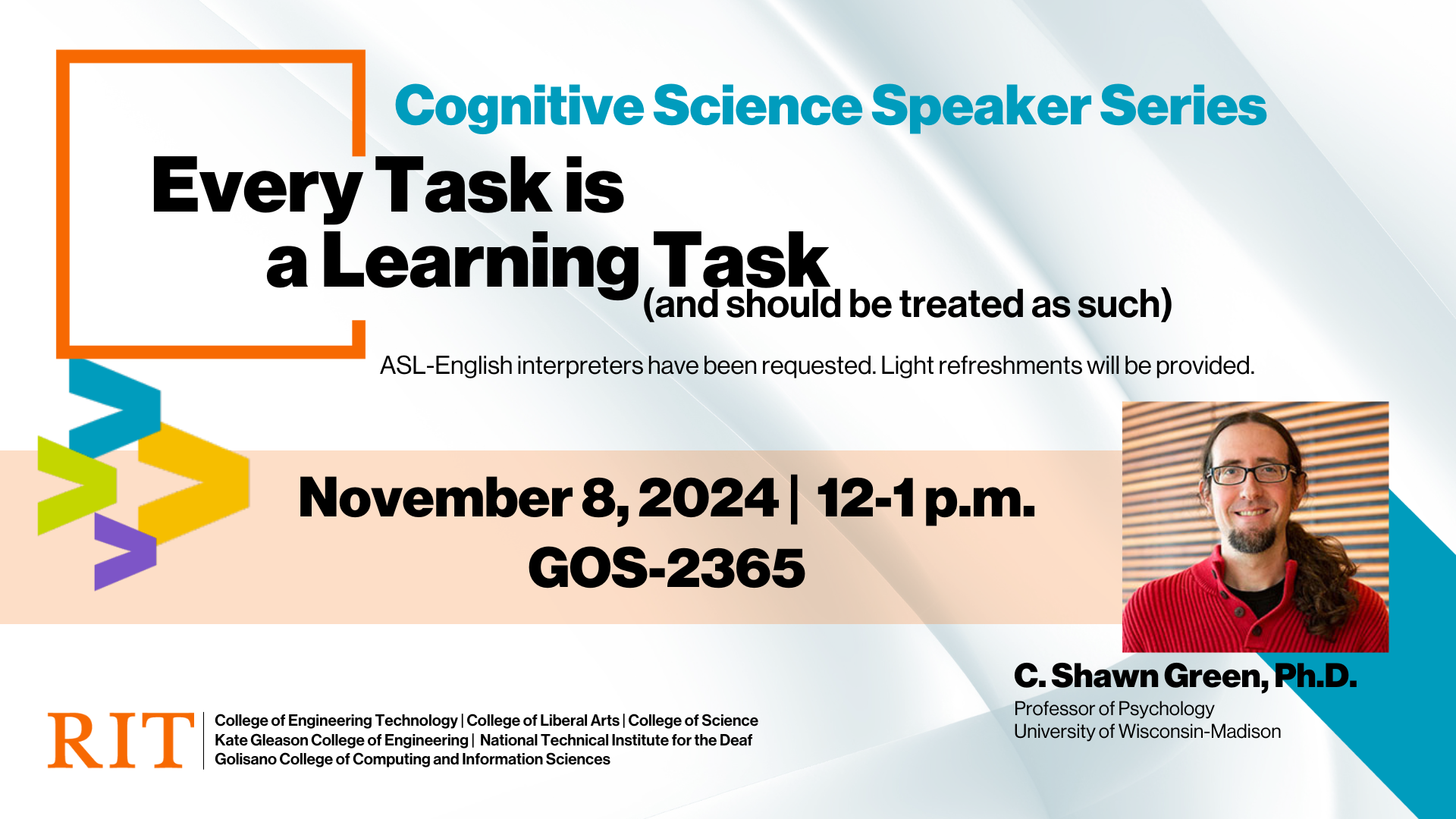Cog Sci Speaker Series: Every task is a learning task (and should be treated as such)

Presenter: Prof. C. Shawn Green
Title: Every task is a learning task (and should be treated as such)
Abstract: Humans’ thoughts and behaviors are embedded in an ever-changing world, and effectively engaging with that world involves constant adaptation and learning of new information and skills. Yet, although learning occurs continuously as we interact with the world, an enormous number of theories in psychology have their roots in experimental approaches and/or data analytic techniques that (at least implicitly) assume humans are unchanging over the course of psychological experiments. This is true for instance, of approaches where performance is aggregated over some number of trials (e.g., where an “average accuracy” or “average reaction time” is taken across trials, whether in “blocks,” “sessions,” “days”, or the full task) as well as in cases where performance is assessed via adaptive procedures meant to find a single value describing participant performance (e.g., staircase procedures to find thresholds). In recent work in the lab we have taken to modelling all behavior as continuously changing in response to experience – even in cases where traditional approaches would take a simple average across trials (e.g., short tasks in a battery each with less than 100 trials). In this talk, I’ll first describe our general approach for this type of modelling and then highlight some of the key benefits both in terms of describing the behaviors themselves (i.e., that continuous approaches better capture how participants are actually behaving) and in terms of the inferences that can be drawn in three unique contexts: (1) in assessing how perceptual learning generalizes after training; (2) in assessing patterns of individual difference-level correlations across tasks (in particular re-examining known links between working memory task performance and fluid intelligence task performance); and finally, to show the wide-ranging utility of the approach, (3) in examining how a common measure of implicit bias predicts outwardly biased behaviors.
Bio: C. Shawn Green received his Ph.D. in Brain and Cognitive Sciences from the University of Rochester and then completed post-doctoral training in computer vision and machine learning at the University of Minnesota before joining the Psychology faculty at the University of Wisconsin-Madison in 2011. His research focuses on human learning - predominantly in the perceptual, motor, and cognitive domains – with a particular emphasis on how to improve individuals’ perceptual and cognitive skills via purposefully designed training regimens as well as commercial off-the-shelf video games. He also has research interests in a variety of other domains related to video game play and virtual reality. Prof. Green has published over 100 peer-reviewed scientific papers and 16 book chapters with his work being cited over 20,000 times all told. His work has been funded by the National Institutes of Health, National Science Foundation, and the Office of Naval Research. He is currently Editor-in-Chief for the Journal of Cognitive Enhancement and Associate Editor for Technology, Mind, and Behavior.
Event Snapshot
When and Where
Who
Open to the Public
| Cost | FREE |
Interpreter Requested?
Yes









